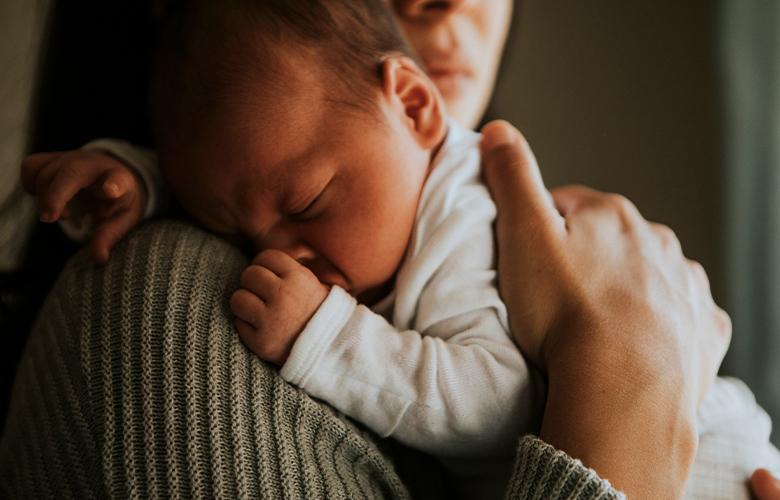
Bringing home a newborn is filled with elation, wonder, exhaustion, and anxiety. When I first got home with my now two-year-old, I felt all these emotions. Everything was so new. I didn’t know what to expect from day to day.
Feeling dazed and confused as a new parent is common. Becoming a parent means new experiences, and it can quickly become overwhelming and feel isolating. Plus the pandemic has made an already trying time worse for new parents due to physical distancing, which limits visits and hands-on support from family and friends. It has also exacerbated feelings of loneliness for many new parents. Coupled with the physiological process that happens after giving birth, mental health can suffer in the postpartum period.
According to the CDC, one in eight women experience postpartum depression symptoms. Between 2008 and 2017 almost 10% of maternal deaths were from mental health conditions, including suicide. But, most maternal mental health conditions are treatable, and suicide is preventable. Here are some key steps to remember in the postpartum period:
1. Take care of yourself. The old mantra sounds cliché, but it is still true. Sufficient sleep, moving your body, and eating regular nutritious meals can help your mental health. Doing something you enjoy just because you enjoy it is also helpful, as is a hot shower without peaking around the curtain at a (hopefully) sleeping baby.
2. Set clear expectations. Set expectations for what you can do in a day while healing and caring for a newborn. Take a break from some of the household activities. The laundry will be there tomorrow—it won’t mind.
3. Connect when and how you can. The pandemic has made connecting harder, but technology can help make it easier. Set up weekly chats or find a parent group online that feels supportive to you.
4. Talk to your health care providers. Many OBGYN and pediatrician offices screen for postpartum depression at 6-week OB check-ups and 1-, 2-, 4-, and 6-month well-baby check-ups. If you need support at other times, ask. Lactation consultants and home visiting programs are incredible supports.
5. Ask for help. I know it’s not easy, since this time is “supposed to be happy.”
- Reach out to the Postpartum Support International Helpline at 1-800-944-4773 or text 800-944-4773 (English) or 971-420-0294 (en Español).
- If it’s a crisis, call the National Suicide Prevention Hotline at 1-800-273-TALK (8255) or your local crisis hotline number.
Here are some other resources for you:
- Postpartum Support International
- Office of Women’s Health on Postpartum Depression
- Risk and Protective Factors | Suicide Prevention Resource Center (sprc.org)
| Rachael Kenter is a prevention specialist with EDC with a background in public health, substance misuse prevention, and suicide prevention. |


Add new comment